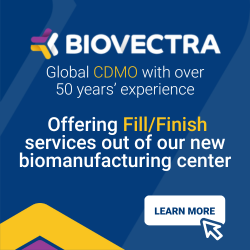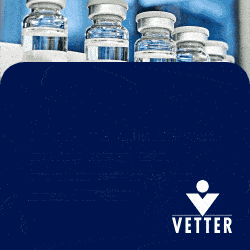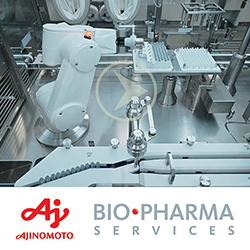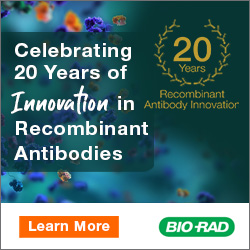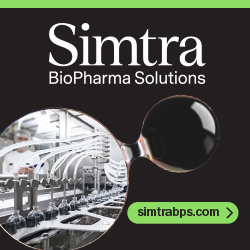10/25/2011
Abbott to Separate Into Two Leading Companies
Abbott recently announced it plans to separate into two publicly traded companies, one in diversified medical products, and the other in research-based pharmaceuticals. The diversified medical products company will consist of Abbott’s existing diversified medical products portfolio, including its branded generic pharmaceutical, devices, diagnostic and nutritional businesses, and will retain the Abbott name. The research-based pharmaceutical company will include Abbott’s current portfolio of proprietary pharmaceuticals and biologics and will be named later. Both companies will be global leaders in their respective industries.
“This news is a significant event for Abbott, and reflects another dynamic change in our company’s 123-year history, strengthening our outlook for strong and sustainable growth and shareholder returns,” said Miles D. White, Chairman and Chief Executive Officer, Abbott.
Abbott’s proprietary pharmaceutical business has delivered market-leading performance with a sustainable mix of products and built a strong pipeline of proprietary medicines through internal discovery, in-licensing, and collaboration efforts. Abbott also has leadership positions in its diversified businesses, including established pharmaceuticals, nutritionals, diagnostics, and vascular devices, where the company is now the global leader in interventional cardiology.
The research-based pharmaceutical company has nearly $18 billion in annual revenue today and will have a sustainable portfolio of market-leading brands, including Humira, Lupron, Synagis, Kaletra, Creon, and Synthroid. An attractive pipeline of innovative R&D assets – in important specialty therapeutic areas such as hepatitis C, immunology, chronic kidney disease, women’s health, oncology, and neuroscience – will help drive future growth.
The diversified medical products company has approximately $22 billion in annual revenue today and a durable mix of products balanced across four major businesses. It will continue to target double-digit ongoing earnings-per-share growth, with opportunities for geographic expansion, particularly in high-growth emerging markets. The company will have an extensive, broad-based pipeline of new products and technologies as well as opportunities for significant margin expansion.
Mr. White will remain Chairman and CEO of Abbott, the diversified medical products company. Richard A. Gonzalez, currently Executive Vice President, Global Pharmaceuticals, will become Chairman and CEO of the research-based pharmaceutical company. Mr. Gonzalez is a more than 30-year Abbott veteran and was previously President and Chief Operating Officer of Abbott.
Halozyme Announces Positive Results From Roche’s Phase III Trial
Halozyme Therapeutics, Inc. recently announced that the Phase III HannaH trial, conducted by Roche, showed that women with HER2-positive early breast cancer who received a new, investigational subcutaneous (SC) injection of Herceptin (trastuzumab), experienced comparable results to Herceptin given as an intravenous (IV) infusion. The SC administration takes around 5 minutes to administer whereas the IV formulation (the current standard) takes around 30 minutes to infuse. Because the subcutaneous administration is an injection under the skin, it may allow patients to spend less time in hospital receiving their treatment versus the intravenous method. The ready-to-use formulation may also significantly reduce pharmacy time as no medicine preparation time is required.
“We are very pleased to see this important program achieve success in a Phase III pivotal clinical trial,” said Gregory Frost, PhD, Halozyme’s President and CEO. “The convenience of subcutaneous administration may provide another option for women living with early breast cancer.”
No new safety signals were observed, and adverse events were overall consistent with Herceptin IV. Data from the trial will be submitted for presentation at an upcoming medical meeting and will support a marketing application to regulatory authorities in the European Union in 2012.
Roche has additional ongoing trials of a subcutaneous formulation of MabThera (rituximab), using Enhanze Technology in patients with CD20+ non-Hodgkin’s lymphoma (NHL) and Chronic Lymphocytic Leukaemia (CLL).
HannaH is a Phase III, open-label trial involving 596 women with HER2-positive early breast cancer. The trial was designed to compare trastuzumab concentration in the blood (pharmacokinetics), efficacy (pathologic complete response), and safety of
Breast cancer is the most common cancer among women worldwide. Each year about 1.4 million new cases of breast cancer are diagnosed worldwide, and over 450,000 people will die of the disease annually. In HER2-positive breast cancer, increased quantities of the HER2 receptor are present on the surface of the tumour cells. This is known as HER2 positivity and affects approximately 15% to 20% of people with breast cancer.
In December 2006, Halozyme entered into an agreement with Roche to apply Halozyme’s proprietary Enhanze technology to Roche’s biological therapeutic compounds. Under the terms of the agreement, Roche made an initial payment to Halozyme for the application of its recombinant human enzyme, rHuPH20, to three predefined biologic targets exclusive to Roche. In December 2008, Roche selected a fourth biologic target followed by selection of a fifth target in June 2009 and has the option to exclusively develop and commercialize rHuPH20 with an additional eight potential targets. In February 2011, Roche began a Phase III registration trial of subcutaneous MabThera (rituximab), an anticancer biologic, in patients with NHL and CCL. Pending the successful achievement of a series of clinical, regulatory, and sales events, Roche will pay Halozyme additional milestones as well as royalties on future product sales.
Hovione Launches Rapid Proof-of-Concept DPI Product Development Service
Hovione recently announced the launch of its Rapid Proof-of-Concept Study for the development of dry powder inhalation (DPI) products. Building on Hovione’s well-established DPI development capability, the new service simplifies the development of formulations, producing a proof-of-concept formulation of a client’s molecule in just a few weeks.
Hovione has simplified DPI product development, reduced complexity, and reduced the time required for completion by mastering, in concert, particle engineering, formulation technology, and inhaler design, the three disciplines vital to the development of a successful product. Unlike other CROs, Hovione has all of this expertise under one roof, eliminating the coordination issues clients often experience in having to use multiple CROs. The results of this are reduced coordination costs, shortened development timescales, and a streamlining of the development process.
“This new Rapid Proof-of-Concept service offers clients a low risk look at the feasibility of developing a DPI product and gives clients greater confidence about going into later stage development,” said Peter Villax, Hovione’s Vice President of Pharma & Innovation. “Clients of the new service don’t just get a report, they get their first DPI formulation.”
In a short period of time and for relatively little investment, a drug developer can acquire a DPI formulation, potentially adding significant value to an early stage out-licensing opportunity or helping a company move into a stronger position in funding negotiations with venture capitalists.
Hovione is an international company with over 50 years of experience in API development and compliant manufacture. With four FDA-inspected sites in the
Patheon Signs 3-Year $18-Million Development Agreement
Patheon, Inc., a global provider of drug development and manufacturing services to the international pharmaceutical industry, recently announced that Boehringer Ingelheim, a leading globally operating pharmaceutical corporation, has awarded it two projects with combined revenue of more than $18 million over a 3-year period of time. The projects are both fixed-dose combination drugs in development for the treatment of the growing population of type II diabetics.
“I am very gratified that Boehringer Ingelheim recognizes our expertise in formulating, scaling, and successfully launching complex formulations, such as these molecules,” said Mark Kontny, Patheon’s President of Pharmaceutical Development Services and Chief Scientific Officer. “It is this kind of support and recognition that has enabled us to develop our market-leading position in pharmaceutical development services.”
Patheon Inc. is a leading global provider of contract development and manufacturing services to the global pharmaceutical industry. The company provides the highest quality products and services to approximately 300 of the world’s leading pharmaceutical and biotechnology companies. Its comprehensive range of fully integrated Pharmaceutical Development Services includes preformulation, formulation, analytical development, clinical manufacturing, scale-up, and commercialization. The company’s integrated development and manufacturing network of 10 facilities, nine development centers, and one clinical trial packaging facility across North America and
Evonik Launches EUDRAGIT E PO ReadyMix
Essen, Germany-based Evonik Industries recently announced it has launched EUDRAGIT E PO ReadyMix, a ready-to-use powder blend for taste-masking and moisture protection coatings of pharmaceutical oral solid dosage forms. The new product is convenient to use and affords production cost savings, as well as superior performance for protective coatings.
“Until now, our customers had to source EUDRAGIT E PO and all coating excipients and pigments separately from different suppliers. The exact weighing and mixing of the different raw materials were additional time-consuming production steps,” explained Dr. Thomas Riermeier, Head of the Evonik Pharma Polymers product line. “With the new product, burdensome preparation is a thing of the past. Preparation times now should be less than an hour. Additionally, we are able to match the customer’s exact color requirements.”
Evonik developed and produces EUDRAGIT E PO ReadyMix in close cooperation with BIOGRUND GmbH, a company based in
Interested customers should contact Evonik sales representatives, and samples can be ordered immediately and will be available by the first quarter of 2012.
Pharma Polymers, a product line of the Health Care business line of Evonik, is a leader in drug delivery systems for oral and parenteral pharmaceutical dosage forms. Its EUDRAGIT polymer products, used in film coatings and as matrix formers in oral drugs, are industry standards for enteric- and sustained-release drug formulations, as well as for solubility enhancement and protective coatings for taste-masking and moisture protection. Evonik intends to enable formulators to design their drug products and their functionalities with the highest possible flexibility. The new product EUDRAGIT E PO ReadyMix is no exception – it provides high flexibility while providing the advantages of a ready-to-use solid blend.
Imagen Biotech Banks $40 Million to Advance Ophthalmology Therapies
Imagen Biotech, Inc. recently announced it has secured up to $40 million in Series A financing from SV Life Sciences, Novo Ventures, and Fidelity Biosciences to pursue the identification and development of breakthrough treatments for blinding diseases with high unmet medical needs, including dry age-related macular degeneration (dry AMD).
Matthew Feinsod, MD, an ophthalmologist who was formerly at Eyetech Pharmaceuticals and a medical officer in the FDA’s Ophthalmology Division, will lead these efforts as Chief Medical Officer for Imagen. Additional terms will not be disclosed.
In addition to Dr. Feinsod, David Guyer, MD, former Founder and CEO of Eyetech Pharmaceuticals and current Partner at SV Life Sciences, will serve as the Executive Chairman of Imagen.
“With capital commitment in place, Imagen can focus 100% of our energy and resources on bringing the best therapies to patients. We are grateful to our investor partners for this opportunity,” said Dr. Feinsod.
Dry AMD, representing at least 80% of the estimated 15 million patients with AMD, and less-common retinal diseases, such as Stargardt and others, historically have been poorly understood, and the regulatory path for any potential therapies was uncertain. Recently, however, researchers have identified several relevant disease pathways, and regulators have outlined clearer paths to product approval.
Imagen Biotech, Inc. is a private, venture-backed biopharmaceutical company focused on identifying and developing therapeutics for blinding diseases with high unmet medical needs, including dry age-related macular degeneration. Since its formation in the summer of 2011 with financing from SV Life Sciences, Novo Ventures, and Fidelity Biosciences, Imagen continues to evaluate numerous compounds sourced worldwide to determine their feasibility as drug development candidates. Imagen is funded to develop approximately three compounds through predetermined milestones.
Total Page Views: 859







